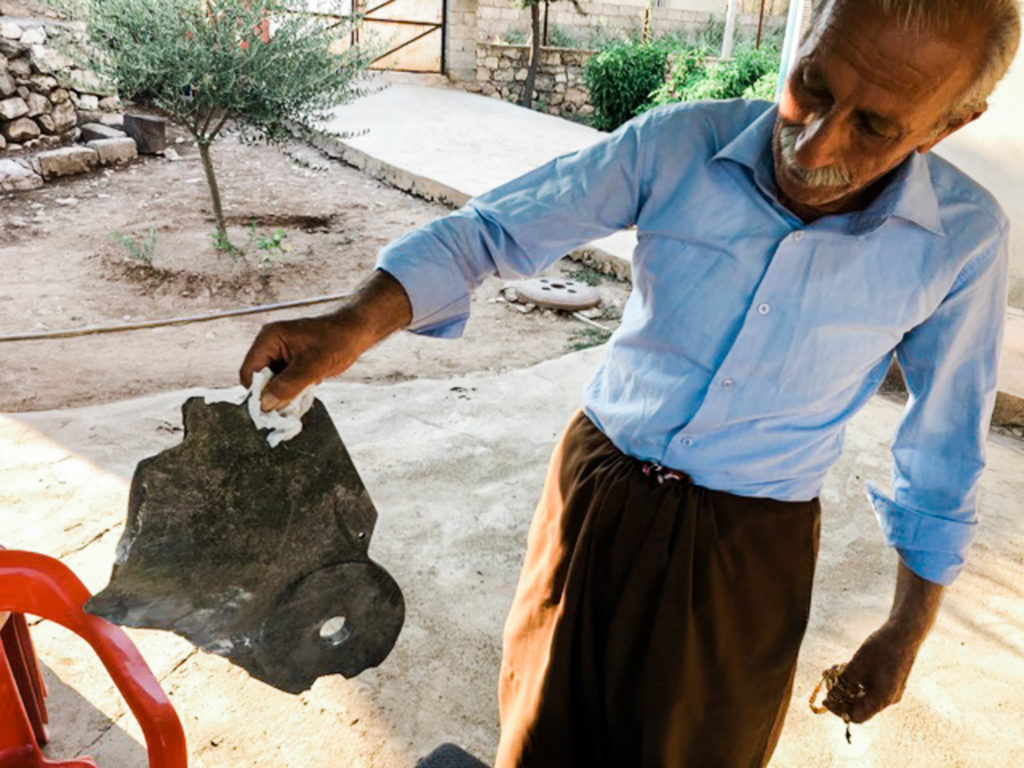International outrage followed the Turkish military incursion into northern Syria, where airstrikes and a ground offensive have killed civilians and displaced communities. However, these human rights abuses by the Turkish military aren’t new and aren’t limited to Turkey’s actions in northern Syria. Over the past 13 years, our human rights organization, Christian Peacemaker Teams (CPT), has seen the same callous disregard for the civilian impacts of bombing in Iraqi Kurdistan.
CPT started accompanying villages affected by Turkish bombings in 2006, after traveling to the border region and speaking with people who had been directly impacted. The villages are not only inhabited by Kurds- Assyrian Christians and several other ethnic and religious minorities also live in the region.
The bombings are part of a campaign by Turkey against the Kurdistan Workers’ Party (PKK) that has been going on for over three decades. Since beginning of CPT’s accompaniment work, we have documented the massive civilian harm caused by this campaign.
Turkish cross-border airstrikes have devastated many agricultural communities, who can no longer harvest sumac and nuts from nearby mountains without risking their lives. Bombs dropped by Turkish warplanes kill and maim civilians, as well as livestock like sheep and goats. Unexploded bombs render some fields unusable for farming. Houses, mosques and other structures are often destroyed, and bombs that make impact outside villages still break windows and terrify communities.
On October 3, 2019, the Turkish Air Force started a bombing campaign around the Assyrian Christian villages in the Nahlah Valley of Iraqi Kurdistan. The impact from the bombardments sent rocks and shrapnel into nearby towns. Many villagers fled their homes, and the only Assyrian school in the area was closed. The village of Chame Rabatke has seen over 70% displacement in the last year. “Hour by hour, day by day it is getting worse. For five years we have been resisting, but we can not stay here anymore,” the village leader of Hizanke told CPT after his home was targeted.

Village leader of Chame Rabatke holds shrapnel from Turkish bomb found near his home. October 2019. Julie Brown.
Villages don’t just face attacks from planes and drones. Turkish military bases have sprung up near villages, sometimes tens of kilometers past the border. Last year, soldiers on one of these bases fired a mortar directly at civilians who were harvesting nuts on a nearby mountainside. The mortar killed 19-year-old Dunya Rasheed. Soldiers from the base told the villagers to say she had stepped on a land mine and cleared the remnants of the weapon- but not before the villagers had gathered photographic evidence of their own.
As is the case in Syria, the Turkish government is empowered to carry out these cross-border bombings by the silence and complicity of other international governments. The United States considers Turkey an ally, and continues to provide them with weapons and other support. From 2014-2018, about 60% of Turkish weapons imports came from the United States. The leading governmental party of Iraqi Kurdistan has also allied itself with the Turkish government, leaving their own affected citizens without representation in this complicated geopolitical struggle.
The fleeing civilians, casualties, and terror that the world has seen over the past week as Turkey entered northern Syria continues a decades-long pattern of civilian harm and human rights abuses. We call on Turkey to end its pattern of human rights abuses against Kurds and other communities, whether it is within Turkey, across the border in Syria, or in Iraqi Kurdistan. We also call on the rest of the world to end their complicity in these crimes, by ending arms sales and military support to Turkey.
Julie Brown has served as a Christian Peacemaker Teams (CPT) corps member in Sulaimani, Iraqi Kurdistan, for the last four years.
Tori Bateman serves on the CPT steering committee and is a policy advocate in Washington, DC.






















